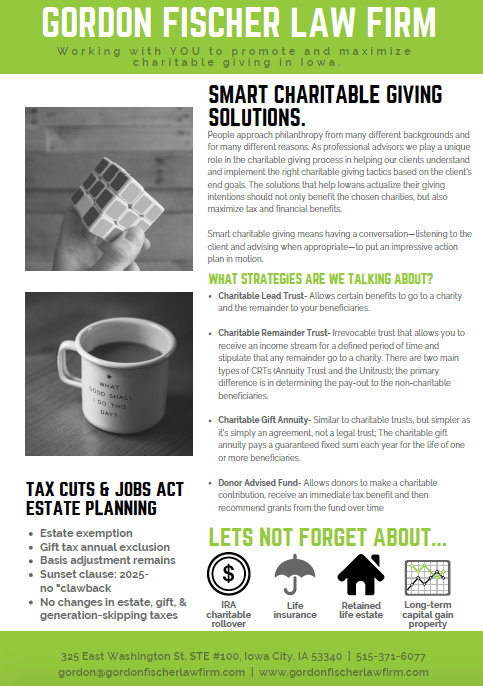The great thing about your estate plan is that once you have one, it never expires. However, it does need to be kept current with your life as well as applicable laws. Why? Keeping your estate plan updated and current is simply a smart part of planning. An outdated estate plan could more easily be challenged in probate court or create unnecessary tensions between your loved ones.
Because of this, I advise Iowans to review estate plans on an annual basis. Simply check in with your lawyer, and other professional advisors, every year or so. Some clients like to do this around the first of the year, others choose to do so on an easily remembered date like a birthday or anniversary. Others pick a random date. Any date will work, just stick with it every year.
Seek the help of a professional advisors to update your estate plan, most especially when you undergo a major life change. A few of the most prominent examples:
- You get married or divorced.
- A birth or death occurs among your family or other beneficiaries of your estate.
- A person you chose to be a guardian, trustee, or executor dies or becomes critically disabled and unable to fulfill their responsibilities.
- There is a change in the value and/or kind of property you own. Examples of this could be receiving an inheritance of some kind or right-sizing as retirement age approaches).
- You move to another state or country, or you acquire significant property in another state or country. (A common example of this is buying a second home, like a condo in Mexico or lake house in Minnesota).
Any of these changes require careful (re)analysis of your estate plan.
If you have experienced any major life changes (including one not listed here), don’t hesitate to reach out to me at any time. If you’re not quite at this stage yet and first need the important key documents that comprise an estate plan, get started with my free, no-obligation Estate Plan Questionnaire.



